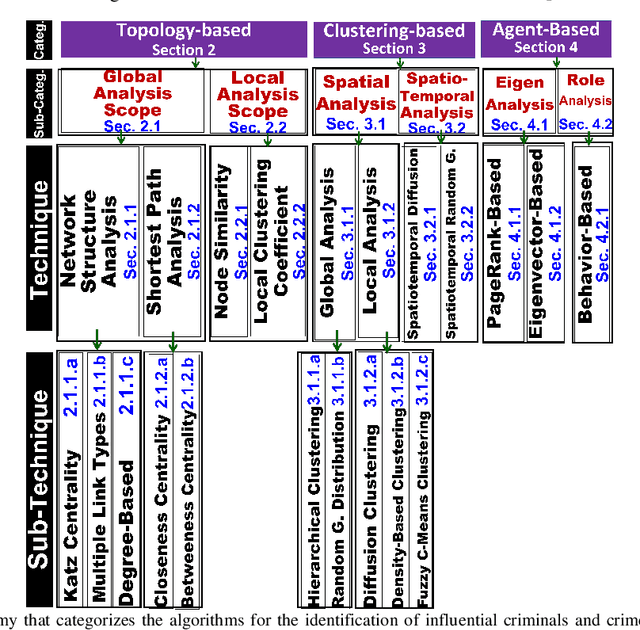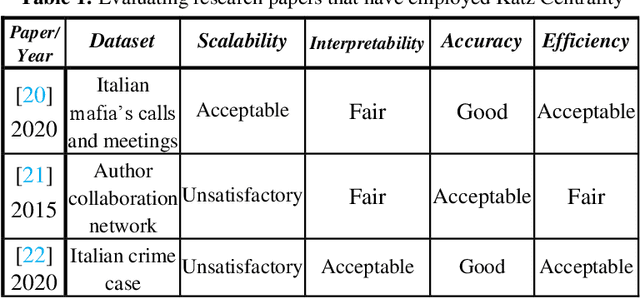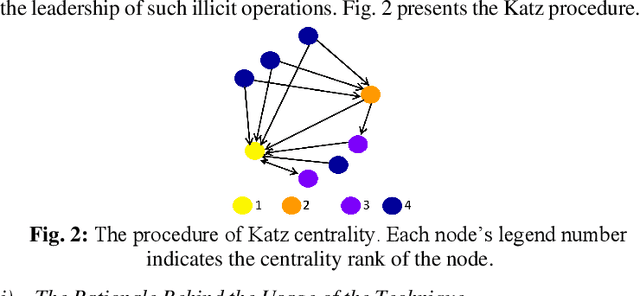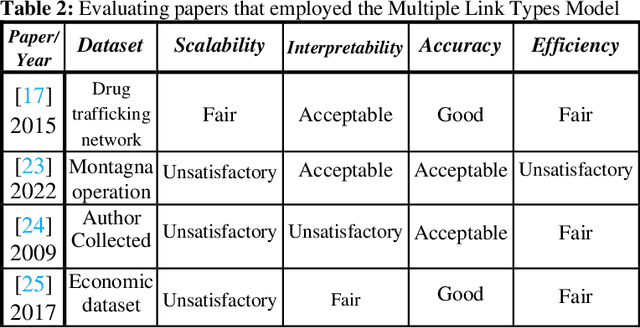Techniques to Detect Crime Leaders within a Criminal Network: A Survey, Experimental, and Comparative Evaluations
Paper and Code
Jan 26, 2024



This survey paper offers a thorough analysis of techniques and algorithms used in the identification of crime leaders within criminal networks. For each technique, the paper examines its effectiveness, limitations, potential for improvement, and future prospects. The main challenge faced by existing survey papers focusing on algorithms for identifying crime leaders and predicting crimes is effectively categorizing these algorithms. To address this limitation, this paper proposes a new methodological taxonomy that hierarchically classifies algorithms into more detailed categories and specific techniques. The paper includes empirical and experimental evaluations to rank the different techniques. The combination of the methodological taxonomy, empirical evaluations, and experimental comparisons allows for a nuanced and comprehensive understanding of the techniques and algorithms for identifying crime leaders, assisting researchers in making informed decisions. Moreover, the paper offers valuable insights into the future prospects of techniques for identifying crime leaders, emphasizing potential advancements and opportunities for further research. Here's an overview of our empirical analysis findings and experimental insights, along with the solution we've devised: (1) PageRank and Eigenvector centrality are reliable for mapping network connections, (2) Katz Centrality can effectively identify influential criminals through indirect links, stressing their significance in criminal networks, (3) current models fail to account for the specific impacts of criminal influence levels, the importance of socio-economic context, and the dynamic nature of criminal networks and hierarchies, and (4) we propose enhancements, such as incorporating temporal dynamics and sentiment analysis to reflect the fluidity of criminal activities and relationships, which could improve the detection of key criminals .
 Add to Chrome
Add to Chrome Add to Firefox
Add to Firefox Add to Edge
Add to Edge